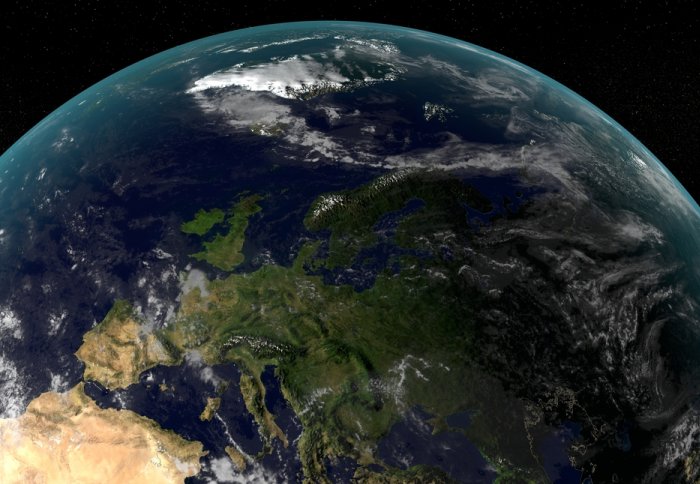Introducing the EPSRC CDT in the Mathematics of Planet Earth

Imperial is preparing students for the joint challenge of tackling climate change and developing successful careers as mathematicians.
Extreme weather and climate change are two of the most pressing issues facing humanity, especially given the growing economic and societal impacts of global warming.
Mathematics is not the traditional recruiting ground for the environmental sciences but it’s an area that produces people with exactly the skills we need to understand the climate and predict the future state of the ocean and the atmosphere
– Dr David Ham
NERC Independent Research Fellow, Department of Mathematics
The subject of the Mathematics of Planet Earth (MPE) has gained considerable momentum throughout the world during the past few years. Demand for researchers is growing fast and the world’s mathematical community has no choice but to get involved and play a substantial role in research matters focused on climate change, weather variability, ocean circulation and sustainability.
These are particularly difficult research areas, which require collaboration between researchers, access to massive high quality data sets, and a long-term commitment.
Talented and trained mathematicians are necessary to solve these problems, which is why, with support from the Engineering and Physical Sciences Research Council (EPSRC), the Department of Mathematics and the Grantham Institute - Climate Change and the Environment have joined forces with the University of Reading to create the EPSRC Centre for Doctoral Training in the Mathematics of Planet Earth for the purpose of training the future leaders of mathematical research in MPE. The Centre is dedicated to cohort learning. Small groups of mathematics PhD students from different backgrounds are recruited and taught to collaborate as they learn the diverse fundamentals of the topic.
“Mathematics is not the traditional recruiting ground for the environmental sciences” says Dr David Ham, NERC Independent Research Fellow in the Department of Mathematics, “but it’s an area that produces people with exactly the skills we need to understand the climate and predict the future state of the ocean and the atmosphere.”
Challenge, choice and career development
The purpose of the MPE CDT is to produce PhD researchers capable of undertaking independent world-class multidisciplinary research. Typically, they are high achievers with a can-do attitude and a real enthusiasm for the topic
– Dr Anna Radomska Botelho Moniz
Centre Manager, EPSRC Centre for Doctoral Training in the Mathematics of Planet Earth
The Centre offers students the chance to take a purpose-developed Masters by Research (MRes) in their first year, leading to a PhD project in the following three.
The aim of the MRes is to give students time to develop all of the technical skills and background knowledge required to carry out their PhD work successfully. Students also receive a bespoke set of transferable skills training, designed to facilitate cohort formation, and networking opportunities, and to underpin multidisciplinary research.
Collaboration with external partners is also encouraged, bringing students close to world-leading weather and climate services (such as the Met Office) and representatives from key commercial sectors, including energy, water, marine and insurance.
Each year’s cohort works together as peers and friends to develop their research skills in this area, staying in contact with each other as they perform the work required to earn a Mathematics PhD in this topic. The Centre is the first response of this type to the world-wide demand.
“It’s an efficient and positive work environment that fosters great teamwork”, says Centre Manager Dr Anna Radomska Botelho Moniz.
Building fully-rounded professionals
“The purpose of the MPE CDT is to produce PhD researchers capable of undertaking independent world-class multidisciplinary research” explains Anna. “Typically, they are high achievers with a can-do attitude and a real enthusiasm for the topic.”
The aim is that each student will graduate with substantial, interdisciplinary experience in applying cutting-edge mathematics to challenging and urgent problems as well as the communication, management and leadership skills needed for a successful career.
To that end, it would be wonderful to hear from alumni able to share relevant expertise and career advice or to offer placements to the Centre’s students. As a first step, please talk to Patrick Stewart, Head of Development for the Faculty of Natural Sciences, on +44 (0) 20 7594 2667 or by email to patrick.stewart@imperial.ac.uk.
Article text (excluding photos or graphics) © Imperial College London.
Photos and graphics subject to third party copyright used with permission or © Imperial College London.
Reporter
Imogen Ashfield
Advancement
Jenn Rowater
Advancement